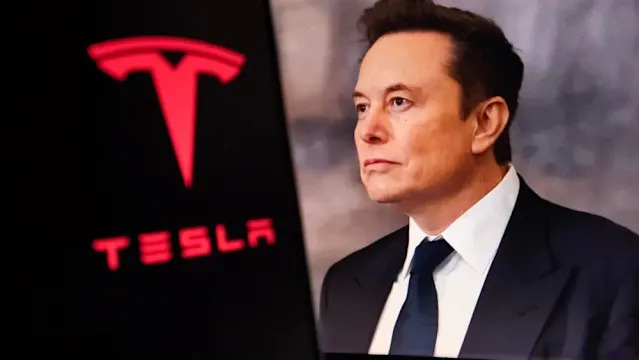An investment group has formally requested that Nasdaq investigate the $29 billion pay package that Tesla’s board of directors recently approved for CEO Elon Musk, arguing that the move should have required a shareholder vote.
«This is sort of the outcome of having a board that is not independent,» said Tejal Patel, executive director of SOC Investment Group, which filed the request, per Fortune. Patel called the terms of Musk’s pay package «pretty unheard-of.»
What’s happening?
SOC Investment Group wrote a letter to Erik Wittman, Nasdaq’s head of enforcement, requesting that Nasdaq investigate whether the lucrative pay package violated Nasdaq rules.
«We write to request that Nasdaq promptly investigate and take appropriate remedial action on Tesla, Inc. … for its recent grant of an estimated $29 billion equity award to its CEO, Elon Musk, as disclosed to the public on August 4, 2025,» SOC wrote.
Tesla’s board of directors, which approved the pay package, has long faced accusations of a lack of independence and an inappropriate fealty to Musk.
The compensation package, announced in early August, followed a previously awarded $54 billion payout, which has been tied up in court due to investors’ objections.
Courts have overturned that previous pay package, with the litigation now headed to the Delaware Supreme Court, according to Fortune. Per its terms, the new $29 billion package would only take effect if the previous $54 billion award does not come to fruition.
The highly lucrative payouts were part of an effort by Tesla’s board to get Musk to focus his time and efforts on the company. In addition to Tesla, Musk is deeply involved in several other ventures, including the social media site X (formerly Twitter), SpaceX, xAI, Neuralink, and The Boring Company.
Additionally, Musk recently engaged in a highly publicized and highly controversial foray into government.
Why does it matter?
Musk’s controversial compensation package has resparked the heated debate over executive pay and the independence of corporate boards, which are intended to safeguard investors against things like overly generous payouts.
From 1978 to 2023, the compensation of top CEOs increased by 1,085% while compensation for the typical worker went up only 24% over the same span, according to the Economic Policy Institute.
This amounted to CEOs making 240 times as much money as the average worker, a more than ten-fold increase over 1978, when CEOs received 21 times the compensation of the typical worker, per EPI.
SOC Investment Group, which requested the investigation, works with unions, advising them on how to invest their pension funds. In that capacity, SOC represents the retirement savings of roughly two million workers, according to Fortune.
SOC has accused Tesla’s board of misleading investors, having them approve a previous compensation program that, by its terms, excluded Musk.
By Nasdaq rules, changing those terms to include Musk should have required an additional investor vote, SOC argued. But the board did it anyway.
Additionally, Musk’s $29 billion payout has raised eyebrows for its lack of any performance benchmarks whatsoever.
These kinds of arrangements are sometimes referred to as «fog-the-mirror grants,» according to Brian Dunn, the director of Cornell University’s Institute for Compensation Studies.
«If you’re around and have enough breath left in you to fog the mirror, you get them,» Dunn explained, per Fortune.
